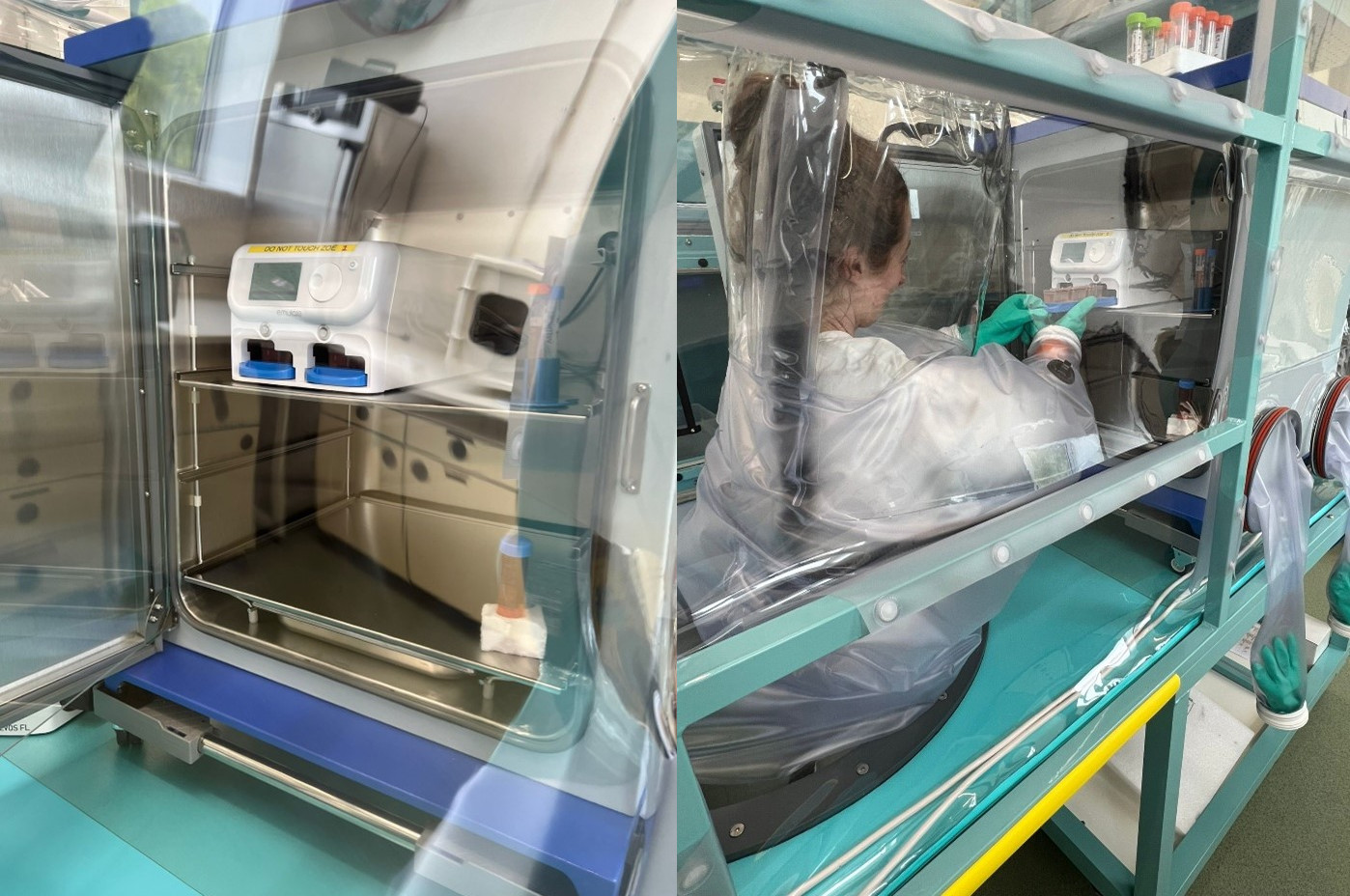Microphysiological Systems
As can be seen in the image, the complexity of the ciliated epithelium (which looks like layers of cells with hairlike projections) can now be simulated using our microsphysiological systems to model the human respiratory tract more accurately. In collaboration with academic partners, UKHSA is now infecting microphysiological organ systems simulating the lung, gut and other organs with specific microorganisms.
UKHSA's studies are currently focused on protecting the public from SARS-CoV-2, but we will be further developing these microphysiological systems to help develop vaccines, drug and therapeutics against a broad range of other dangerous infectious diseases including MERS and Influenza virus. In the long term, we anticipate that this research will accelerate the rate of development of novel medicines.
Animal Research Governance and Oversight
Find out moreMicrophysiological Systems

